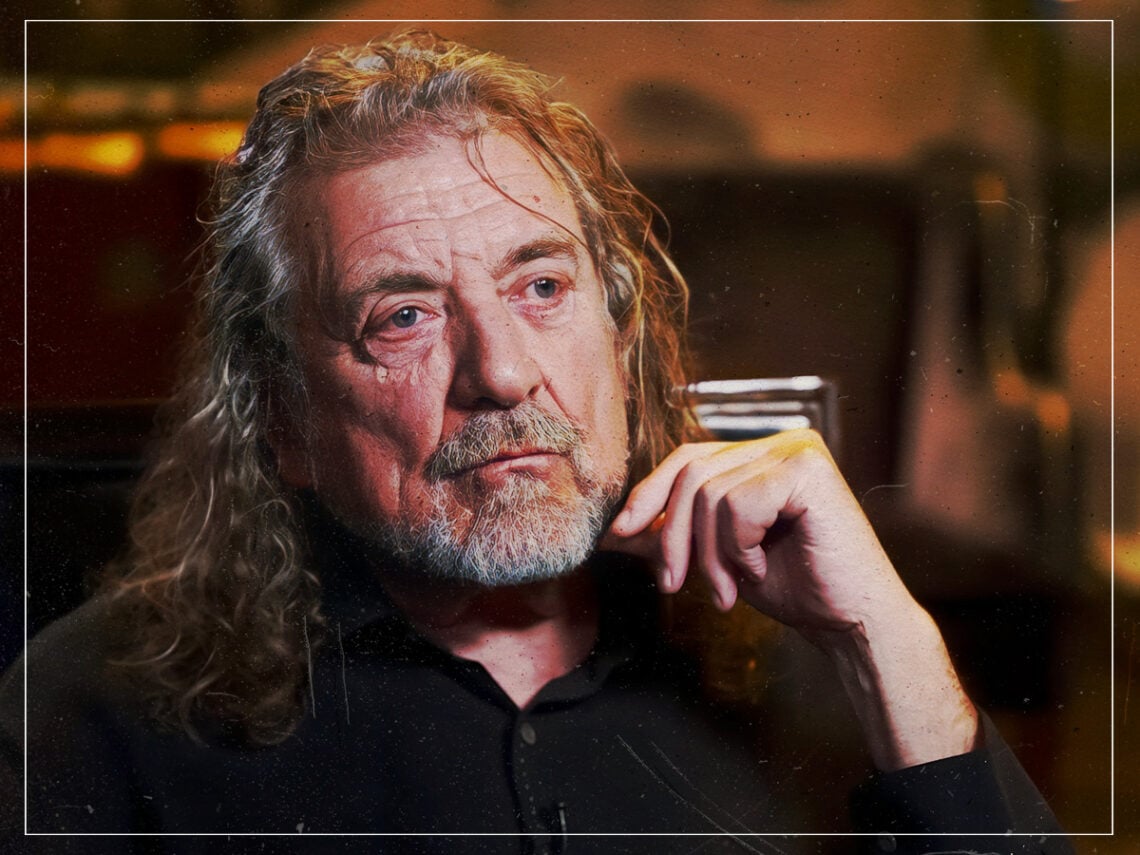Although Led Zeppelin played a significant role in Robert Plant‘s life, he doesn’t often reminisce about his time with the group. Instead, he prefers to look forward and distance himself from the version of himself who once fronted the world’s most prominent rock groups. However, as it is such a vast part of his history, the lyricist is occasionally forced to ponder.
Like anybody else who has been in the music business for their entire adult life, Plant has mixed feelings about his career. Nevertheless, while he regrets certain aspects of his output with Led Zeppelin—whether these are his endless references to Tolkien or the questionable lyrics of ‘Stairway To Heaven’—Plant mostly feels pride about what they achieved.
During his live shows, Plant rarely leans on their back catalogue too heavily, and when he does perform tracks, he doesn’t try to imitate the original recording. Although he’s aware of the cultural impact of their tenure, there’s far more to his artistry than merely Led Zeppelin.
Plant may not lose sleep worrying about Led Zeppelin’s legacy, but if it were up to him, there is one seismic change that he’d happily change if given the opportunity. Of course, it’s common for many artists to grow to resent certain songs that become popular, and for Plant, ‘Stairway to Heaven‘ is his primary cause of concern. For many, it’s the first song that springs to mind when they think about Led Zeppelin, which frustrates Plant because he believes ‘Kashmir’ is their finest cut.
While ‘Kashmir’ remains one of Led Zeppelin’s most iconic tracks, ‘Stairway to Heaven’ has transcended the band itself, continuing to dominate classic rock radio for decades. In addition, ‘Stairway to Heaven’ has been streamed over a billion times on Spotify, more than 300% higher than ‘Kashmir’, solidifying its status as a timeless anthem.
‘Kashmir’, which appeared on the 1975 album Physical Graffiti, was a track on which Led Zeppelin spent many years acquiring the skills to create. The grandiosely epic song is one they didn’t have the tools to make at the start of their career, and it showcased their stark development as a group. In the mind of Plant, it epitomises the very best of Led Zeppelin and a much more fitting epitaph for their career than ‘Stairway to Heaven’.
“I wish we were remembered more for ‘Kashmir’ than ‘Stairway to Heaven’. It’s so right,” he once told Q Magazine. The singer continued: “There’s nothing overblown, no vocal hysterics. Perfect Zeppelin.”
Plant has spoken in superlative terms about the track multiple times, including in a 2018 discussion with Dan Rather. “It was a great achievement to take such a monstrously dramatic musical piece and find a lyric that was ambiguous enough and a delivery that was not over-pumped,” said Plant.
Every member of Led Zeppelin brought their A-game to the track’s recording. John Bonham’s drumming is a particular aspect of the song that Plant adores, which he believes to be a crucial part of the brilliance of ‘Kashmir’. While Bonham is usually viewed as a powerhouse who could drum harder than anyone else on the planet, it was the delicacy of Bonham’s work that Plant appreciates the most on ‘Kashmir’. “It was what he didn’t do that made it work,” Plant explained. “It was almost the antithesis of the music, this lyric and this vocal delivery that was just about enough to get in there.”
Providing further insight into the creation of the Physical Graffiti cut, guitarist Jimmy Page once recalled how the band instantly knew they’d made a track of the highest quality, remarking: “The intensity of ‘Kashmir’ was such that when we had it completed, we knew there was something really hypnotic to it, we couldn’t even describe it such a quality.”
Page further elaborated: “At the beginning, there was only Bonzo [drummer John Bonham] and me in Headley Grange. He played the rhythm on drums, and I found the riff as well as the overdubs which were thereafter duplicated by an orchestra, to bring more life to the track. It sounded so frightening at first.”
After Bonham and Page began working on ‘Kashmir’, it was brought to John Paul Jones and Plant, who added their layers of magnificence to the table, enabling Zeppelin to strike perfection. It remains a source of minor frustration for Plant that ‘Kashmir’ isn’t the most widely appreciated Led Zeppelin song in their arsenal. Yet, it still has an impeccable legacy and captures the classic rock group at the peak of its powers, giving him more than enough reason to celebrate.

